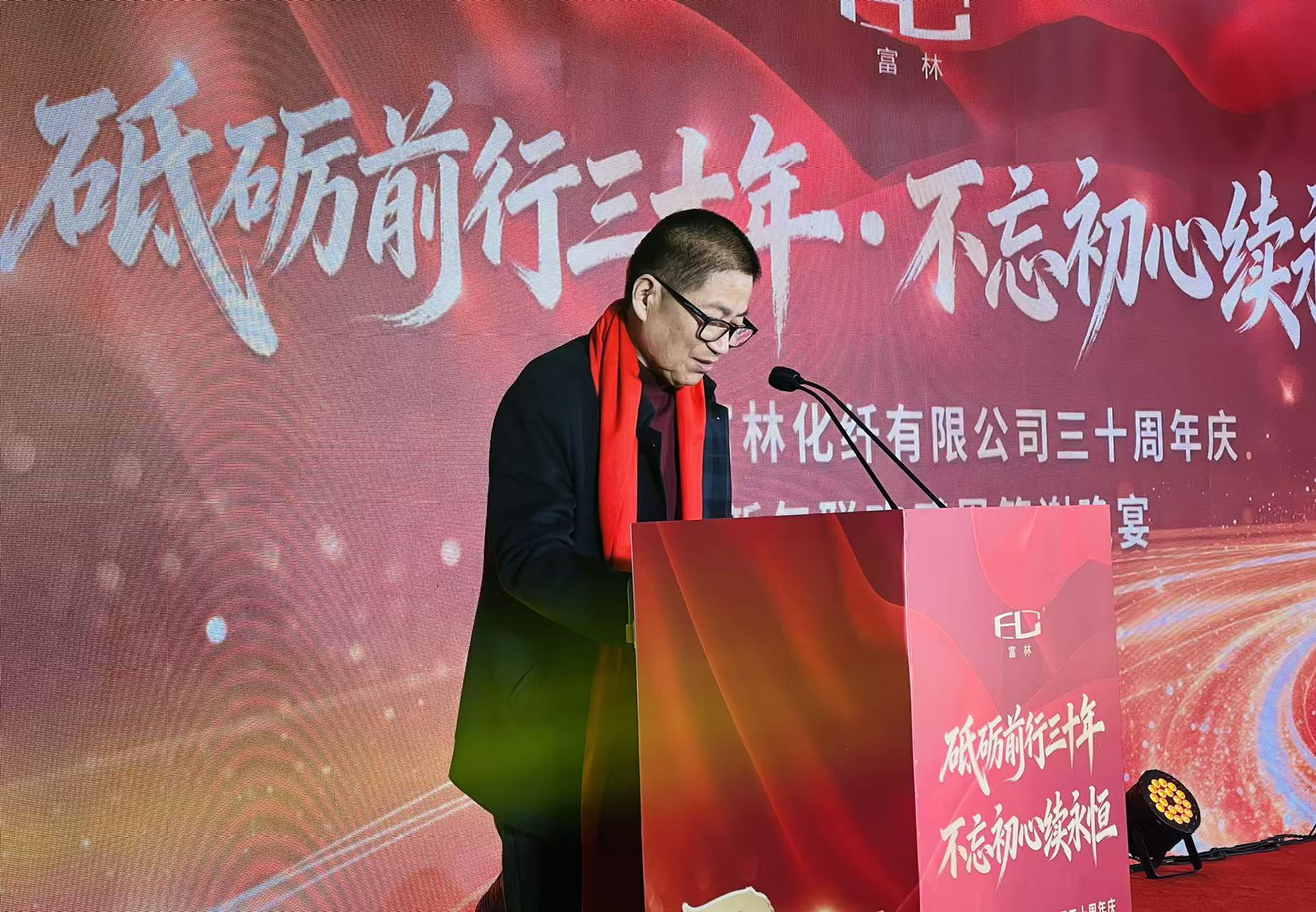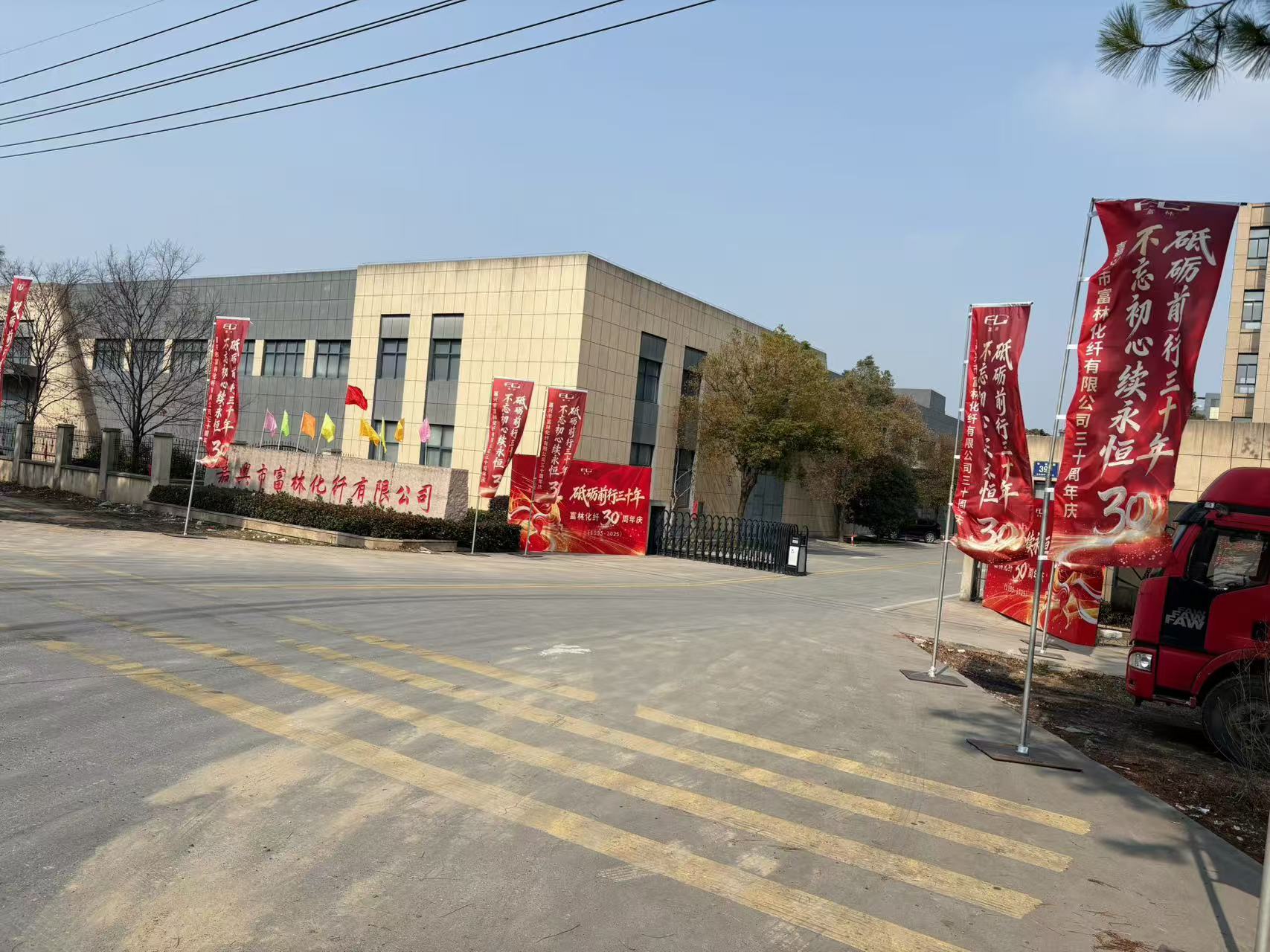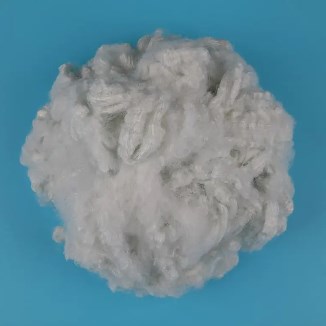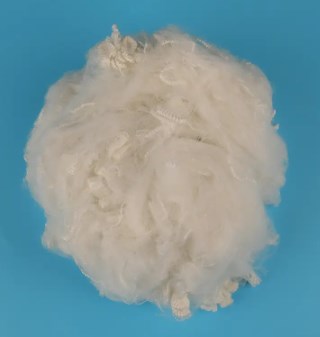Product Consultation
Your email address will not be published. Required fields are marked *

Forge ahead for thirty years, never forget the original intention and start again——Fulin Chemical Fiber’s 30th Anniversary Party Concluded Successfully
Feb 12,2026
Daily Market Trends 【2026/2/11】
Feb 12,2026
The 30th anniversary celebration of Jiaxing Fulin Chemical Fiber Co., Ltd. is about to kick off
Feb 12,2026In the modern textile industry, denier fiber is a frequently mentioned term among professionals when discussing refined, high-performance, and multifunctional fiber materials. With the upgrading of consumer products and the increasing demand for lightweight, comfort, and durability, denier fiber, with its unique diameter fineness standard and application advantages, is widely used in clothing, home furnishings, medical, and industrial fields. Whether it's elastic fabrics, sports functional fabrics, or high-end home textiles, denier fiber plays an irreplaceable role.
Understanding the Core Concepts of Denier Fiber
Denier, as a unit of measurement for fiber fineness, represents the weight of 9000 meters of fiber. The characteristics of denier fiber determine its application range and mechanical properties under different fineness and structural conditions. Fine denier fibers are often soft to the touch and delicate in feel, making them an important component of lightweight and highly comfortable fabrics; while medium to coarse denier fibers possess better strength, support, and abrasion resistance, and are more commonly found in outdoor functional fabrics and industrial textiles.
Denier fiber is not merely a technical parameter, but also an industry language directly reflecting the style, structural performance, and application level of textiles. For textile products, controlling the linear density of the denier number, and thus balancing the softness, resilience, and thickness of the fabric, is a crucial technological consideration in textile design.
The Performance-Driven Role of Denier Fiber in Fabric Design
With the convergence of fashion apparel and technological textiles, fabrics not only serve an aesthetic function but also become carriers of comfort, durability, and versatility. Behind these attributes, denier fiber plays a fundamental supporting role. Fibers with different denier specifications offer varying tensile strength, bending resistance, luster, and abrasion resistance, determining the balance between visual appeal and performance in a fabric. High-denier fibers provide greater structural support, making them particularly important for high-strength applications such as outdoor functional clothing and waterproof jackets; while low-denier fibers, with their soft and silky feel, are widely used in skin-friendly fabrics such as underwear and bedding.
When selecting fiber specifications, designers need to consider a comprehensive range of factors, including fabric warp and weft density, weaving method, finishing processes, and final application. Denier parameters provide a precise basis for fabric positioning and indirectly influence the product's perceived quality and market pricing.

Denier Fiber Drives the Integration of Functional and Technological Textiles
In recent years, with the continuous iteration of intelligent textile technology, denier fibers have been endowed with more characteristics and applied to new fields. In sports technology fabrics, low-denier microfibers combined with special cross-section designs achieve more efficient moisture wicking and breathability. In functional textiles with antibacterial, UV-resistant, and tear-resistant properties, fiber materials of different denier grades combine lightweight and strong performance, meeting professional outdoor needs while maintaining wearing comfort.
In high-end industrial supporting fields, denier fiber, as a basic unit of composite materials, is providing raw material support for high-performance textile fields such as transportation, construction, and medical. From air filtration materials to protective clothing, from composite reinforced textile materials to limb bandages, the structural advantages of denier fiber continue to break through traditional applications, bringing more possibilities to the technical textile market.
The Role of Denier Fiber in Sustainable Textile Trends
Against the backdrop of green transformation, the production, application, and recycling of denier fibers are undergoing significant adjustments. More and more fiber companies are using recycled polyester and recycled nylon to reduce denier specifications while maintaining performance output and reducing resource consumption. The development and production of ultrafine denier fibers has accelerated the implementation of the "lightweight" textile concept, not only reducing yarn usage but also improving the overall fabric efficiency.
Low-denier environmentally friendly fibers are highly favored in high-value markets, supporting cost reduction and efficiency improvement for enterprises and promoting product development towards low-carbon, multifunctional, and comfortable directions. The sustainable transformation of denier fibers is also becoming an important means for brands to increase added value and create environmentally friendly selling points, meeting consumers' expectations for high-performance, cost-effective, and environmentally friendly products.
Future denier fiber products will focus more on integration with functional technologies and ecological materials, presenting a new pattern of technology leadership, customized applications, and diversified development. Through in-depth insights into user needs and structural adjustments, denier fibers will unleash greater potential in the future textile industry chain, becoming an important component in building a high-value-added supply chain.

Raw White Non-Woven Staple Fibers: A Core Force and Application Prospect in the Nonwoven Fabric Industry
2025-11-01
Hollow Conjugated Fiber: A Combination of Lightweight and Functionality
2025-11-15Your email address will not be published. Required fields are marked *
Focusing to the research and production of differentiated fiber. Applying recycle-material processing scientifically.
Zhulinjizhen, Xinfeng Town, Jiaxing City, Zhejiang Province
Copyright @ 2023 Jiaxing Fuda Chemical Fiber Factory All rights reserved
Polyester Staple Fiber Manufacturers
Friendship link - Anhui Fulin Environmental Protection Technology Co., Ltd.:https://www.ahflhb.com
